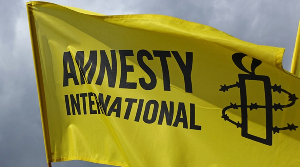Introduction
I chose this topic owing to multiple inquiries we received from persons seeking to know the appropriate forum where they could make their application; either at their place of residence or in their country of nationality. This article covers only nonimmigrant visa (NIV).
Place of Residence
As a general rule, a person applying for a NIV must make their application at the consular district in which they have residence. “Residence” is the applicant’s place of general abode; the principal, actual dwelling place in fact, without regard to intent. In other words, it is the place where the applicant in fact lives and under most common circumstances from which they conduct their life. (See Foreign Affairs Manual 9 FAM 41.101 N1.1)
Example: A Ghanaian student who holds a UK Tier 4 Student visa and is pursuing a course of study in the UK will have residence in the UK if he establishes a place of general abode. He may therefore apply for a B visa at the U.S. consulate in London.
Place of Physical presence or out-of-district application
A person may also apply for a NIV at a place where they are physically present, though they do not have residence there. This is an out-of-district application. “Physical presence” is the fact of being in a place at a given moment. Thus, although the applicant’s place of general abode may be located in one place, they may be physically present in another (Foreign Affairs Manual 9 FAM 41.102 N1.2).
Example: If the Tier 4 Student visa holder visits Ghana on holiday, he may be physically present in the U.S. consulate district of Ghana. He may therefore apply for a B visa at the U.S. consulate in Accra, even though his residence is in the UK.
Difficulties with out-of-district application
An out-of-district application has adversities. First, it may be difficult for an out-of- district applicant to overcome the burden of proof required by law. In some cases, the consular officer’s unfamiliarity with local conditions in other countries may make it more difficult for out-of-district applicant to demonstrate their qualifications for a visa than in their home district. Again, the consular officer may view the application with suspicion as being made to conceal a possible fraud; or at best, forum shopping.
Example: If the Tier 4 Student visa holder visits Ghana on holiday and decides to apply for a B visa, he must establish a residence he does not intend to abandon. This residence need not be in Ghana. If he decides to establish the UK as his residence, the consular officer in Accra may be unfamiliar with local conditions in the UK which could make it more difficult for the applicant to demonstrate his eligibility for the B visa than if he had applied in the UK where he has residence.
Country of Nationality
In certain cases, an applicant will be directed to apply for a NIV in their country of nationality. This will be the case if the applicant was admitted on the basis of a nonimmigrant visa and remained in the U.S. beyond the period of stay authorised. In such a case, the consular district will decline to process the application and will inform the applicant to apply for the visa in their country of nationality unless extraordinary circumstances exist. (See section 222 (g) of INA)
Example: If the Tier 4 Student visa holder makes an application for a B visa at the U.S. consulate in London, and the consulate finds that that the applicant has overstayed a NIV, the consular office will refuse to process the application, and will inform the applicant to make his application in Ghana, his country of nationality.
Conclusion
The general place of application is the consular district in which the applicant resides. Nonetheless, the applicant may make an application at a consular district in which they are physically present, though they do not have residence there. If an applicant has overstayed a NIV they will be directed to apply for a visa at their country of nationality unless extraordinary circumstances exist.
By Emmanuel Opoku Acheampong
Disclaimer: This article only provides general information and guidance on U.S. immigration law. The specific facts that apply to your matter may make the outcome different than would be anticipated by you. The writer will not accept any liability for any claims or inconvenience as a result of the use of this information
The writer is an immigration law consultant and a practicing law attorney in Ghana. He has special interests in U.S., UK, and Schengen immigration law. He works part-time as a consultant for Acheampong & Associates Ltd, an immigration law firm in Accra. He may be contacted at acheampongassociatesgh@gmail.com or on 0200388706.
Opinions of Tuesday, 29 September 2015
Columnist: Acheampong, Emmanuel Opoku














